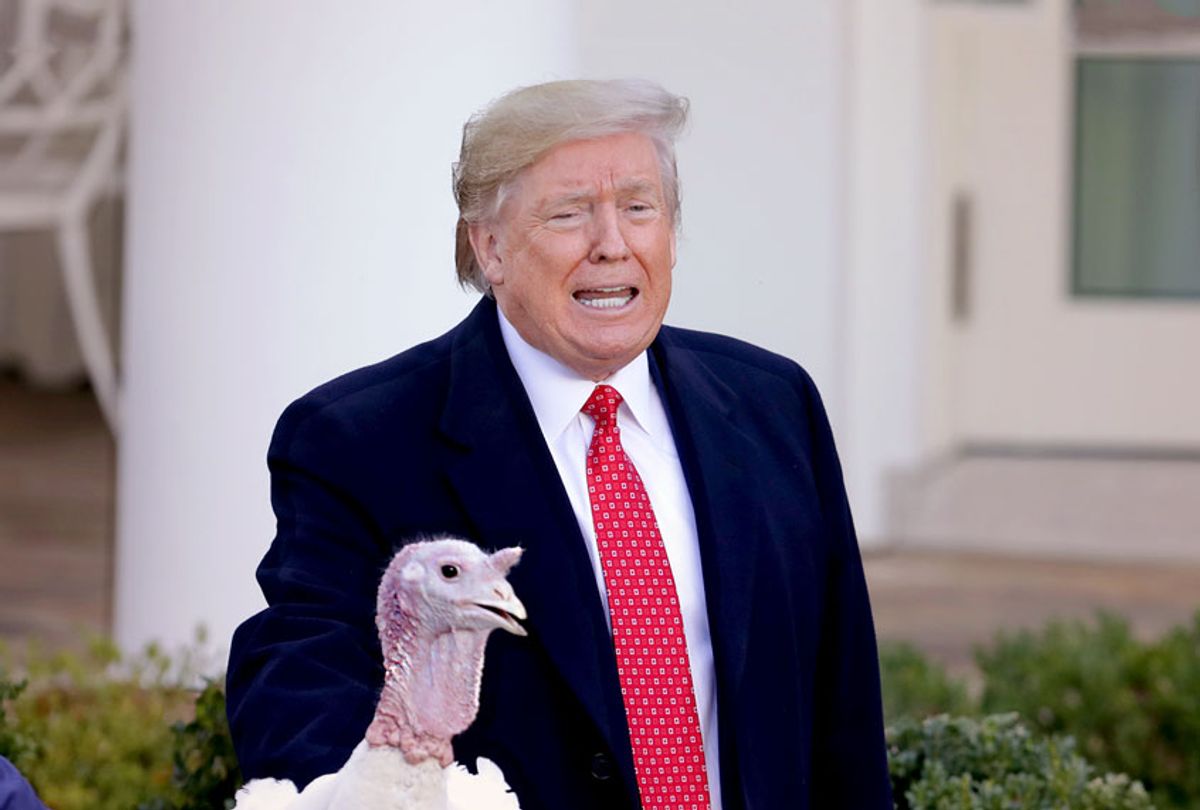Keith Puntenney never gave his permission for the Dakota Access Pipeline to cut through his Iowa farmland. When, in 2016, the state took the land anyway, he and several other landowners sued regulators for trespass, on the grounds that while the pipeline served North Dakota oil drillers, it had no public use benefit for Iowans, as required under the federal law of eminent domain.
For Puntenney, 74, the complaints didn't end there. He worried about the region's water, the reason indigenous leaders at Standing Rock led a year of protests in North Dakota. On its way ferrying light sweet crude from North Dakota's Bakken Formation to a terminal in Illinois, the pipeline crosses under the Lake Oahe reservoir, a major source of drinking water for the Standing Rock Sioux and their neighbors. He anticipated the project disturbing fertile ground so corn could no longer thrive. That kind of construction mixes topsoil with the deep soil, which is clay, he said. Clay has a different pH, and it "doesn't let the rain penetrate" to the corn's roots.
But Puntenney also worried, on a global level, about the climate. Like a lot of Iowa's farmers, he saw his crops flattened and outbuildings battered when a straight-line wind event known as a derecho, or what Puntenney calls a "land hurricane," tore across the state this past August. He has struggled to raise corn and soybeans despite mercurial rainfall – sometimes too much, more often too little. "We have less rain right now than we had in the Dust Bowl," he said. "The rain in 1933 was about 24 inches and in 1934 it was 22…This year we've had about 20."
"If you want to talk about climate," he said, "this is climate on steroids."
Environmental activists in Iowa, from the local Sierra Club to the grassroots Bold Iowa, have long fought the Dakota Access Pipeline (DAPL), or "dapple" as Puntenney calls it. They rejoiced when the Obama administration denied its permit in the last month of that president's term, and they grieved when Trump almost immediately expedited the pipeline's construction by executive order. They have continued to fight since the pipeline went into service in June of 2017, and in the run-up to the Iowa Democratic caucuses on February 3, they badgered Democratic hopefuls at public gatherings to oppose a plan to double DAPL's flow. ("Harris was always good" on that count, Bold Iowa's Ed Fallon said. "Not as good as Tom Steyer, but certainly better than Biden.")
To the extent that the state's farmers agree with them, it's less because they worry that more oil pipelines mean more exported oil, stoking the forces that fuel ever-bigger wildfires in the West and record flooding in the East. It's more because the oil lobby keeps trying to hobble the Renewable Fuel Standard, a 15-year-old government program that requires a certain volume of biofuels to replace petroleum-derived gasoline and diesel. Iowa produces more corn-based ethanol than any other; 39 percent of the corn grown in the state goes into the fuel.
That doesn't mean those farmers are climate voters. As a rule, farmers in rural Iowa have been reluctant to use the term "climate change" at all, Wally Taylor, chair of the Iowa Chapter of the Sierra Club, told me. "They call what they're seeing 'evolving weather patterns," he said. "There are some legislators who understand the science, but they're [still] careful not to call it 'climate change.'"
But it does mean that what Puntenney calls the "deeply Republican and bottom-line oriented" farmers of Iowa may be inclined this year to vote in greater numbers for Democrats. Incumbent Sen. Joni Ernst, a Republican, "has basically supported a lot of fossil-fuel folks over and above the ethanol folks," Puntenney said. The "Trump embargo" – the trade war with China that hit soybean farmers hard – didn't help either. "China was our No. 1 buyer of soybeans for years and years and years. Now they've gone to South America [for their soybeans]." He doubts they're coming back.
"Farmers have long memories when you start picking their pockets," Puntenney said. "And they aren't stupid."
Puntenney and his allies lost their trespassing case against Iowa regulators and DAPL at the district court level and again in the Iowa Supreme Court. But Puntenney hasn't given up. In July, U.S. District Court Judge James Boasberg ordered DAPL shut down and emptied, a ruling that was subsequently stayed by an appeals court, which has allowed the pipeline to operate while the U.S. Army Corps of Engineers completes an environmental review. It's something most Iowans believe is long overdue: A 2016 Des Moines Register/Mediacom pollof the state found that 51 percent of respondents thought the pipeline hadn't been studied enough, including a plurality of Republicans.
Puntenney is hoping a new Democratic administration will step in and put an end to the whole business. "It's a question of whether Biden's willing to do what Obama did and say not only no, but hell no," he said. His more anti-pipeline vice president might need to lobby him, he said. But in any event, "He needs to make some heads roll."
Copyright 2020 Capital & Main




Shares